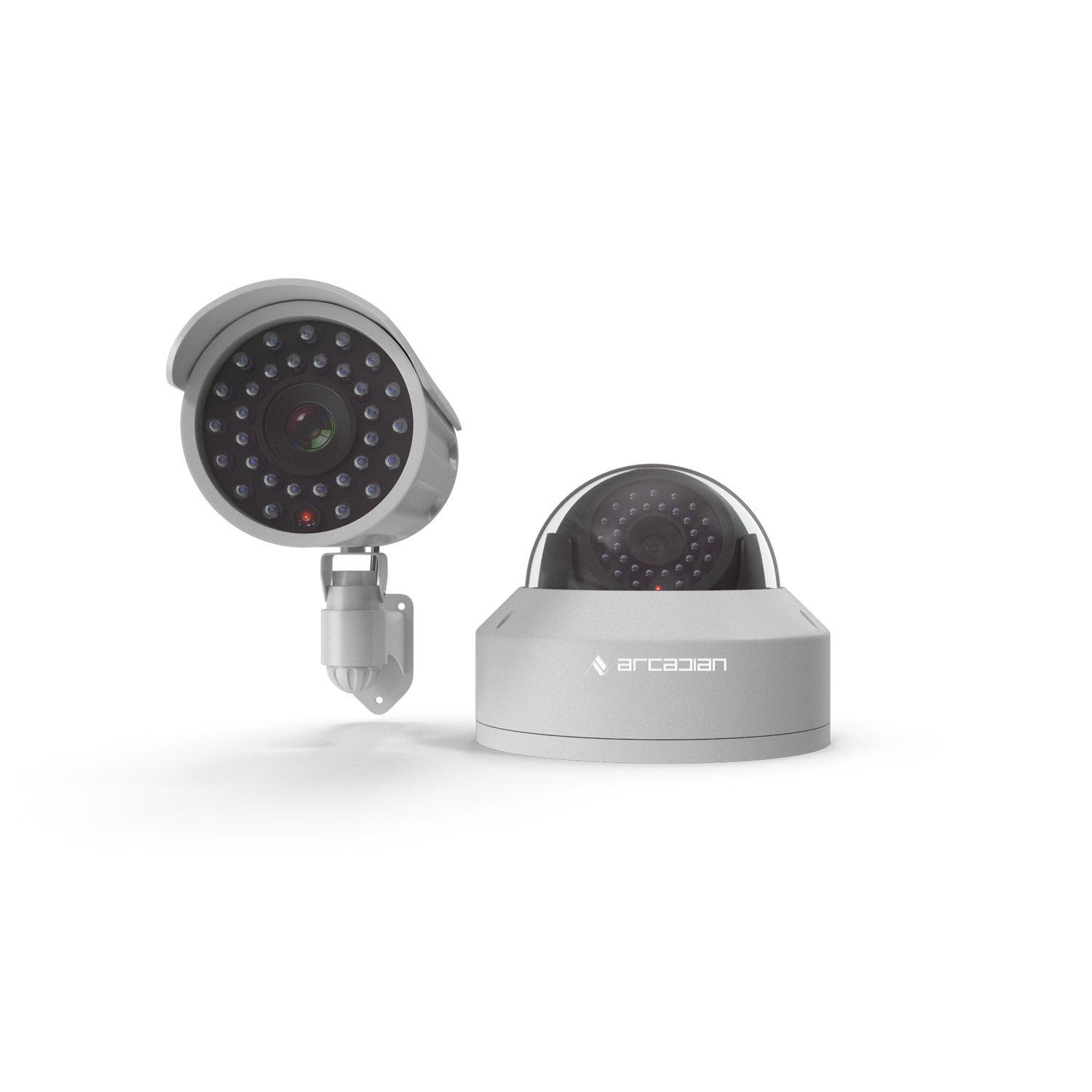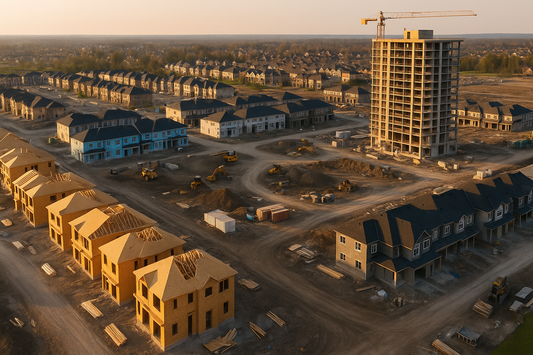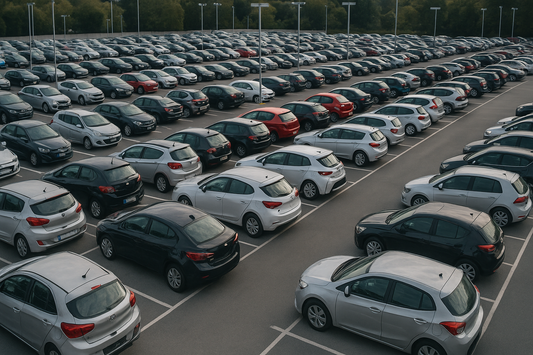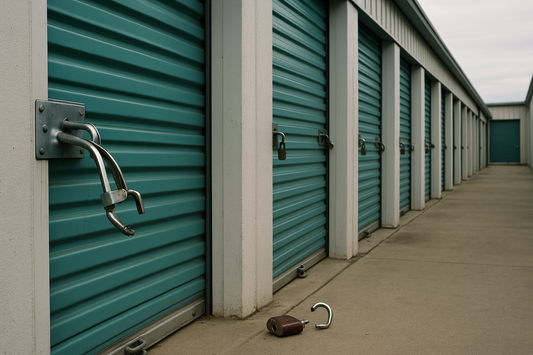What Is NDAA Compliance and Why It Matters for Security Technology
Would you knowingly install a security system that might be spying on you?That’s the question many organizations—especially U.S. government entities and critical infrastructure operators—are asking when they evaluate security cameras and video surveillance systems. The answer lies in three powerful letters: NDAA. You may have seen the term “NDAA compliant”...

- 🔐 What is the NDAA?
- 🕵️♂️ Why Was the NDAA Surveillance Ban Created?
- 🚫 Which Brands Are Banned Under the NDAA?
- 🧠 So, What Does “NDAA Compliant” Really Mean?
- 🏛️ Who Needs to Care About NDAA Compliance?
- 🧨 The Hidden Risks of Non-Compliant Security Systems
- 💡 Why Chinese Surveillance Giants Struggle with NDAA
- 🔍 How to Check if a Security System is NDAA Compliant
- 🌎 NDAA and Global Impact: It’s Not Just a U.S. Issue
- 🤖 What About Cloud Video Platforms Like Arcadian.ai?
- 📈 NDAA and the Future of Surveillance
- 💬 Final Thoughts
Would you knowingly install a security system that might be spying on you?
That’s the question many organizations—especially U.S. government entities and critical infrastructure operators—are asking when they evaluate security cameras and video surveillance systems. The answer lies in three powerful letters: NDAA.
You may have seen the term “NDAA compliant” on security camera spec sheets or cloud video monitoring platforms like Arcadian.ai. But what does it actually mean? Why are some of the biggest names in surveillance—particularly Chinese brands—not NDAA compliant? And more importantly, why should your business care?
Let’s break it all down. This post will guide you through everything you need to know about NDAA, its implications on the security industry, and what’s at stake if you choose a non-compliant system.
🔐 What is the NDAA?
The NDAA stands for the National Defense Authorization Act. It's a series of United States federal laws passed annually that specify the budget, expenditures, and policies of the U.S. Department of Defense.
But in 2019, something changed. With rising concerns over cyber-espionage and supply chain vulnerabilities, the U.S. government enacted Section 889 of the 2019 NDAA, which bans federal agencies from using or purchasing certain telecommunications and video surveillance equipment from specific Chinese manufacturers.
📜 Section 889: The Key Clause
Section 889 prohibits government agencies and contractors from:
-
Procuring covered telecommunications equipment or services.
-
Entering into contracts with any entity that uses such equipment or services.
🕵️♂️ Why Was the NDAA Surveillance Ban Created?
Imagine if your surveillance system wasn’t just watching for intruders—but was also sending data back to a foreign government.
That’s the core fear behind the NDAA’s video surveillance restrictions.
U.S. intelligence agencies expressed serious concerns that certain Chinese companies—especially those closely tied to the Chinese Communist Party (CCP)—could embed backdoors or exploit security flaws in their products. This could lead to unauthorized data access, remote control of cameras, or even real-time surveillance of U.S. sites by foreign actors.
🚫 Which Brands Are Banned Under the NDAA?
Section 889 specifically names:
-
Hikvision
-
Dahua Technology
-
Huawei Technologies
-
ZTE Corporation
-
Hytera Communications
These companies were flagged due to their ties with the Chinese government and military. They are explicitly banned from being used in any U.S. federal government project or agency.
Even resellers, OEMs, or rebranded versions of these products are in violation of NDAA if they include core components from these companies.
Spoiler: Many low-cost “white-label” cameras on Amazon and Alibaba still use NDAA-banned chipsets, even if they don’t carry the Hikvision or Dahua brand.
🧠 So, What Does “NDAA Compliant” Really Mean?
A security camera or video platform is NDAA compliant if:
✅ None of its components come from the banned Chinese manufacturers.
✅ It can be safely deployed in U.S. government facilities.
✅ It follows the secure supply chain requirements outlined in Section 889.
NDAA compliance is not just about origin. It’s about trust—in your hardware, your software, and your surveillance system’s integrity.
🏛️ Who Needs to Care About NDAA Compliance?
You might think NDAA compliance only matters to government agencies.
But let’s dig deeper:
✅ Government Agencies
Federal, state, and even local governments must follow NDAA rules. If you're bidding for a contract, your equipment must be compliant.
✅ Schools, Hospitals, Airports
These sectors often receive federal funding. Using banned equipment could jeopardize grants or expose them to compliance violations.
✅ Critical Infrastructure
Think utilities, transportation, and energy. The federal government requires these operators to implement robust cybersecurity practices, including supply chain integrity.
✅ Private Businesses With Federal Ties
If your business contracts with the U.S. government in any way, you’re likely affected.
✅ Businesses That Care About Cybersecurity
If you want to protect your brand, your customer data, or your intellectual property, do you really want to risk your network with low-cost cameras that could have foreign backdoors?
🧨 The Hidden Risks of Non-Compliant Security Systems
You may save a few dollars on hardware, but the long-term risks are massive:
❌ Cybersecurity Breaches – Vulnerabilities in non-compliant equipment can be exploited for ransomware or data theft.
❌ Legal & Compliance Issues – Government audits could lead to contract termination or fines.
❌ Brand Damage – If your business is exposed for using banned surveillance gear, it’s a PR disaster waiting to happen.
❌ Loss of Government Contracts – One violation could shut the door to lucrative public-sector deals.
💡 Why Chinese Surveillance Giants Struggle with NDAA
Let’s be clear: China is a global leader in surveillance technology. Hikvision and Dahua together represent over 40% of the global CCTV market.
So why can’t they comply with NDAA?
The issue isn’t just components—it’s ownership and influence.
-
Hikvision is partially owned by the China Electronics Technology Group (CETC), a state-run military supplier.
-
Dahua has deep ties to the Chinese government and is reportedly involved in surveillance operations in Xinjiang.
Even if these companies “cleaned up” their technology stack, the trust issue would remain. U.S. lawmakers and national security experts aren’t just worried about software—they’re worried about political leverage and state-sponsored influence.
🔍 How to Check if a Security System is NDAA Compliant
Not every vendor makes this easy, but here are tips:
-
Ask for Certification – A reputable provider will explicitly state NDAA compliance and provide documentation.
-
Check the Components – Some brands may repackage banned chipsets (like HiSilicon from Huawei) under different names.
-
Go with Trusted Partners – Platforms like Arcadian.ai ensure NDAA compliance from top to bottom, including firmware and cloud storage.
🌎 NDAA and Global Impact: It’s Not Just a U.S. Issue
Several U.S. allies, including Canada, Australia, and parts of Europe, are taking cues from the NDAA. As geopolitical tensions rise and supply chain sovereignty becomes a global priority, NDAA-style compliance is becoming a global benchmark for trust in technology.
🤖 What About Cloud Video Platforms Like Arcadian.ai?
Arcadian.ai is built with end-to-end NDAA compliance in mind. Unlike traditional NVR-based systems, we:
✅ Store video securely in the cloud—no vulnerable hard drives on site
✅ Support 3,000+ camera models, including NDAA-compliant options
✅ Offer full transparency into hardware sourcing and firmware control
✅ Don’t rely on Chinese firmware, chips, or infrastructure
Plus, our Ranger AI assistant acts like a 24/7 virtual security guard—analyzing live feeds, alerting on threats, and protecting your business in real time.
📈 NDAA and the Future of Surveillance
NDAA isn’t going away.
In fact, the next wave of regulation may go even further—blacklisting entire supply chains, mandating software audits, and expanding to smart buildings, IoT devices, and facial recognition tech.
The bottom line: compliance is the new currency of trust in the surveillance industry.
Whether you’re a business owner, an integrator, or a government buyer, choosing NDAA-compliant solutions isn’t just the safe move—it’s the smart move.
💬 Final Thoughts
In today’s digital arms race, every camera is a computer. And every computer is a potential vulnerability.
That’s why NDAA compliance matters. It’s not about politics—it’s about protection. Your business, your people, your data. Don’t leave it up to chance.
If you’re using or planning to install a security system, take the time to ask: Is it NDAA compliant?
If the answer is no… maybe it’s time to reconsider.
👉 Want to future-proof your surveillance?
Discover the next generation of secure, NDAA-compliant video monitoring.
Book a Free Demo with Arcadian.ai
#NDAA #SurveillanceSecurity #Cybersecurity #NDAACompliance #Hikvision #Dahua #SecurityTechnology #USLaw #ChineseCameras #CloudSurveillance #ArcadianAI #RangerAI #TrustedSecurity #GovernmentCompliance

Security is like insurance—until you need it, you don’t think about it.
But when something goes wrong? Break-ins, theft, liability claims—suddenly, it’s all you think about.
ArcadianAI upgrades your security to the AI era—no new hardware, no sky-high costs, just smart protection that works.
→ Stop security incidents before they happen
→ Cut security costs without cutting corners
→ Run your business without the worry
Because the best security isn’t reactive—it’s proactive.







